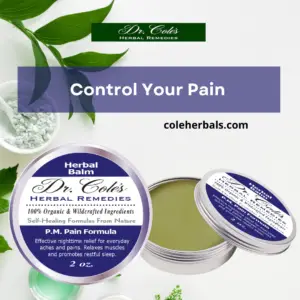
Photo via Delightful Parenting
Nutrition should be a top priority for both children and adults, but it’s harder than ever to reach all of the daily recommended levels of both vitamins and minerals, in large part because of how depleted our soils are due to monoculture, chemical-intensive farming.
According to a landmark study undertaken by Dr. Donald Davis and his team of researchers at the University of Texas (UT) at Austin’s Department of Chemistry and Biochemistry published in 2004, 43 different vegetables and fruits were found to have suffered “reliable declines” in the amount of protein, calcium, phosphorus, iron, riboflavin (vitamin B2), and vitamin C over the past half century.
These declines were attributed to the preponderance of agricultural practices designed to improve traits (size, growth rate, and pest resistance) other than nutrition, the study found.
With that in mind, it’s important to know and understand the top five common nutrient deficiencies in children especially, whose developing bodies are oftentimes even more vulnerable to disease and health problems than adults.
The top five common nutrient deficiencies in children are as follows, according to Dr. Megan Hammel of the Children’s Naturopathic Center of Colorado.
1. Iron Deficiency- An essential mineral providing oxygen to blood cells, iron deficiencies affect up to 25% of more of the population.
Anemia, fatigue, a week immune system and impaired brain function can often result from this deficiency.
Top food sources include red meat, organ meat, shellfish and canned sardines, along with beans, seeds and dark leafy greens, according to Dr. Hammel.
Too much iron can have harmful effects, however, so consult a naturopathic doctor before supplementing or making drastic dietary changes.
2. Iodine Deficiency- This issue affects nearly a third of the world’s population, and is one of the most devastating deficiencies because it affects everything from thyroid function to thyroid hormone production, Dr. Hammel says.
According to Dr. Edward Group of the Global Healing Center speaking recently, replenishing iodine levels over time helps to decalcify the pineal gland as well, one of the most overlooked and important glands in the entire human body.
The pineal gland’s job is to receive information about the state of the light-dark cycle from the environment and convey this information to produce and secrete the key hormone melatonin, which regulates sleep cycles.
Supplementation with iodine can be especially effective for healing these issues according to Dr. Group, who recommends a Nascent Iodine product he’s been working on for years as part of his Global Healing Center products line.
While supplementation is one way to optimize and help play catch-up with your iodine levels, food is perhaps even more important.
Asian cultures are well known for eating seaweed products like organic nori (which is what sushi is wrapped in), as well as soups and broths containing organic dulse, similar to kelp, another form of seaweed that adds a unique, earthy type of flavor to these foods.
Common food sources consumed more widely around the world containing iodine include eggs, fish and dairy, preferably of the grass-fed and raw variety.
3. Vitamin D Deficiency- Vitamin D, a fat soluble vitamin our bodies produce after being exposed to sunlight, is produced from the cholesterol in the skin.
Those who live farther away from the equator are much more likely to have this deficiency according to Dr. Hammel.
The top food sources of Vitamin D are cod liver oil, fatty fish, preferably wild caught, egg yolks from preferably pastured eggs, and sunlight.
Dr. Hammel recommends Vitamin D drops for babies and children.
My current personal favorites are pastured eggs for breakfast every day, along with the Vitamin D3 + K2 Spray from Mary Ruth’s Organics, which is made from organic ingredients, kid-friendly, and contains medium chain triglycerides from coconut oil as a base for an additional boost of brain healthy ingredients.
4. Calcium Deficiency- While older adults often have too many calcium deposits in their body causing arthritis-like symptoms, many children and people in general are deficient in calcium.
Contrary to popular belief, whole food sources like dark, leafy organic greens are the best way to tackle a calcium deficiency, although some dairy products can help, especially if they are raw and grass fed from a trusted and healthy source.
“Calcium is so important for bone and teeth maintenance, especially as children are growing,” Dr. Hammel states on her website.

Pasture raised eggs are one of the top sources of many of the deficiencies on this list. Photo via TC.Farm
“It mainly supports the heart, muscles and nervous system function. When the body absorbs enough calcium in the blood, the rest goes into the bones,” she adds.
“When people are calcium deficient, the most common symptom is osteoporosis (fragile and soft bones.
“Make sure to consume boned fish, dairy products, and dark green veggies,” she says.
5. Vitamin B12 Deficiency- One of the most widely overlooked deficiencies, Vitamin B12 supports the whole nervous system.
If you’ve ever been feeling numb and like your reaction time and connection to the world is lacking, these could be serious signs of B12 deficiency. I personally have supplemented with large amounts of B12 at the behest of my naturopathic, and felt the effects immediately to the point where I was increasing my own dose with each passing day trying to catch up. This could be part of the reason why some people opt for Vitamin B12 injections, although you should always consult a doctor before trying anything of this sort.
Vitamin B12 is a water-soluble vitamin essential for the formations of the brain, blood and nervous system. Every cell needs this vitamin!
Quality sources of Vitamin B12 include shellfish, meat, eggs and dairy products, and Dr. Hammel recommends supplementation as well, especially because of the lack of vegan and vegetarian sources.
Mary Ruth’s makes a Vitamin D3 and B12 supplement from wildcrafted lichen and a bioactive form of B12, Methylcobalamin, which can be found by clicking on this link (use code ALTHEALTHWORKS to receive a 15% off discount if you do end up purchasing).
Symptoms of Vitamin B12 deficiency may include a sore and red tongue, changes in the way you walk and move around, disturbed vision, irritability and depression, so be sure to consult a naturopathic doctor if you experience any of these, and continue experimenting with foods and supplements until you find the right combination of sources to keep your body operating at peak efficiency.
As the old saying goes, attributed to the health journalist Kevin Trudeau, “most people have no idea how good their body is designed to feel.”
Thanks for reading! This article is for informational purposes only and does not constitute medical advice. For more information, see our full disclaimer and affiliate disclosure here.
Thanks for installing the Bottom of every post plugin by Corey Salzano. Contact me if you need custom WordPress plugins or website design.




